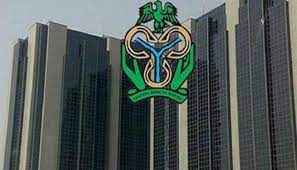The Central Bank of Nigeria (CBN) has finally unveiled its long-awaited audited accounts for the year ended December 2022, revealing a profit after tax of N103.8 billion. This marked an increase from the N75.1 billion reported in the previous year. The audited results, which have now been disclosed on the apex bank’s official website, cover financial records from 2016 to 2021, shedding light on the bank’s financial performance over the years.
Despite currency depreciations and the allocation of intervention funds and loans to the government, the CBN has reported a profit after tax for eight consecutive years. The transparency in releasing these financial statements comes amidst growing public scrutiny, particularly prompted by President Tinubu’s decision to investigate the CBN’s operations under the suspended CBN Governor.
The audited results, signed by Godwin Emefiele and audited by EY and KPMG, underscore the CBN’s reliance on higher interest income, fees, and commissions to maintain profitability. Notably, the apex bank’s net interest income surged by 80% to N1.8 trillion from N1 trillion in the previous year.
Key findings from the financial statements indicate that the CBN earned substantial interest income through loans and advances known as “Ways and Means.” This controversial source of income, totaling N23 trillion, generated N1.9 trillion in interest income, despite criticisms over its size and compliance with central bank regulations.
Additionally, the apex bank reported income derived from AMCON and FGN Securities, along with gains from debt instruments measured at fair value through profit and loss (FVTL). These diverse income sources contribute to the complexity of the CBN’s financial structure.
On the expense front, the CBN reported significant “other operating expenses,” a notable portion of which were losses from foreign exchange revaluation. Another expense item, known as “rebate expenses,” was connected to policies such as RT 200 and Naira4Dollar, designed to attract forex inflows.
The financial statements also revealed expenses associated with intervention activities, federal government obligations, and credit losses, the latter of which nearly doubled from the previous year. The CBN’s total loan book of approximately N31.4 trillion further highlighted the challenge of credit losses.
The balance sheet of the apex bank expanded significantly, increasing from about N35.5 trillion in 2018 to around N57.9 trillion in 2022.
The release of the audited accounts provides a detailed view into the CBN’s financial operations, shedding light on the dynamics of its revenue generation, expense allocation, and the challenges it faces in maintaining profitability amid a complex financial landscape.











